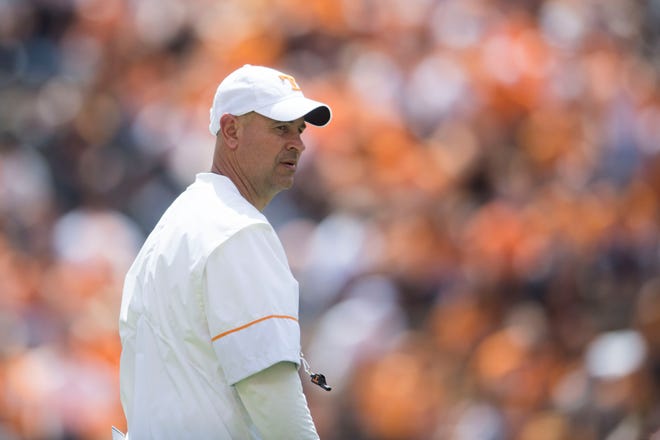It pays to be a Tennessee Vol? In a blockbuster investigation by the NCAA, former Tennessee Volunteers head coach Jeremy Pruitt has been accused of misconduct in recruiting practices. The pay to play scandal has also implicated Pruitt’s wife and members of the coaching staff from 2018-2021. The NCAA alleges that up to $60,000 worth of prohibited compensation was offered to prospective players for the Vols. These incentives were used to recruit more than two dozen athletes to the program.
How It Started
Sometime in 2019, the UT Vols became synonymous with the McDonald’s bag. At the time, there was a rumor floating around the college sports world that Jeremy Pruitt and his staff were gifting recruits with bundles of cash concealed in yesterday’s lunch hour trash.
Had this been entirely true it would’ve been the stupidest (and least secure) method of transaction ever conceived. Unfortunately it actually was half true in that the program was providing illegal meals and gifts to recruits, some of these meals being from Mickey D’s. This was a direct violation of NCAA recruitment rules.
In late 2020, Tennessee launched an internal investigation concerning, what else, recruitment violations.

Pay To Play: Tennessee Investigates
The University of Tennessee conducted its own internal investigation of Pruitt after allegations of recruitment misconduct surfaced in 2020.
For its investigation the university retained former NCAA investigator Michael Glazier and the Bond, Schoeneck & King Law Firm. The school spent almost $1.1million dollars on its investigation of the pay to play allegations.
In January 2021, two months after the investigation began, Pruitt was fired with cause. Other involved members of the coaching staff were fired as well, or left voluntarily when the school began its investigation.
Tennessee imposed its own reduction of 12 scholarships last year. It did not impose a bowl ban, so as not to penalize players and coaches who were not involved in these recruitment violations. UT Chancellor Donde Plowman announced, “In every step of this process, we took quick and decisive actions that exemplified the longstanding values of the NCAA reiterated in the membership’s new constitution.” Plowman emphasized too that the university had shared its conclusions promptly with the NCAA.

Pay To Play: NCAA Investigates
On Friday, a 51 page document was delivered to the University of Tennessee highlighting 18 instances of recruitment misconduct, dating back to 2018. This document also alleges $60,000 of cash or gifts provided to players and their families. The misconduct was carried out by Pruitt, members of his staff, his wife, and at least one booster.
In addition to Pruitt offering almost $9,000 to the mothers of two recruits, Casey Pruitt is said to have paid more than $15,000 in rent and car payments for a player and his mother over a 2 1/2 year period.
During peak COVID, programs were prohibited from conducting on-premises recruitment activities. Also during peak COVID, Pruitt hosted six recruits and their families. The benefits given to these recruits totaled $12,000.
All 18 violations are NCAA Level I violations, the most serious level of NCAA violations.

How It’s Going
On the whole, those numbers seem paltry when compared to other recruitment scandals of years past. Given Pruitt’s record with Tennessee one could justifiably ask, where did the money even go? Nevertheless, recruitment misconduct is a serious offense and the NCAA is known to respond accordingly.
The league has charged Pruitt with failure to maintain an atmosphere of compliance. Because his coaching staff was involved, he has also been charged with failure to monitor his staff. While Pruitt maintains that he looks forward to giving his side of the story, the league has levied an additional charge for violating the NCAA’s principles of ethical conduct. The latter charge has been introduced because Pruitt and his staff knowingly provided improper incentives to recruits and their supporting casts.
Tennessee has not, at this point, been charged with lack of institutional controls. This is thanks in large part to its cooperation with the NCAA throughout the investigation. If the NCAA abstains from charging the university with lack of controls, this could mean Tennessee will avoid facing the league’s most serious penalties.
Now, Tennessee and everyone named in the NCAA report will have 90 days to respond to the allegations. The NCAA staff will have 60 days to respond back. The case will not likely be fully adjudicated until 2023.

